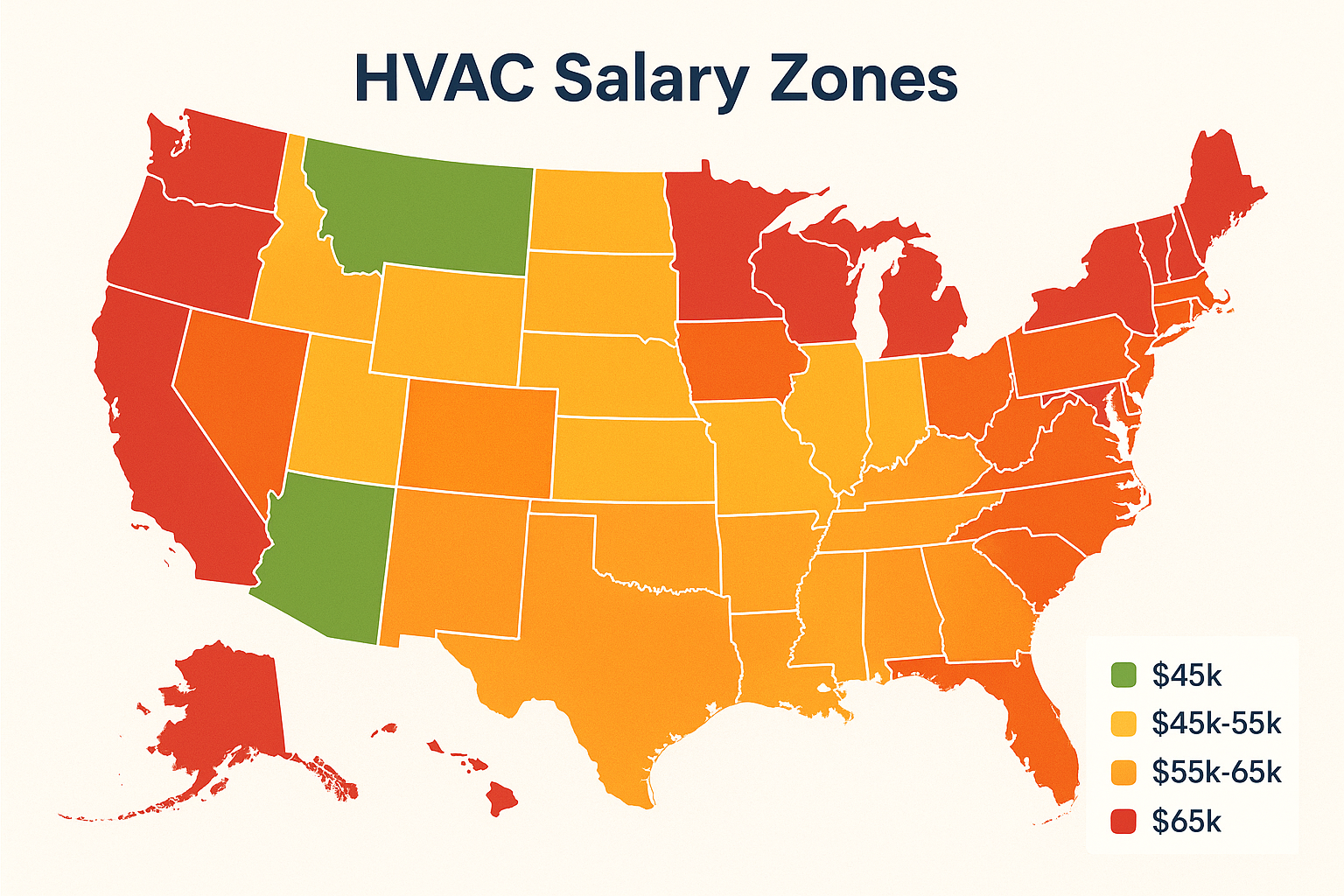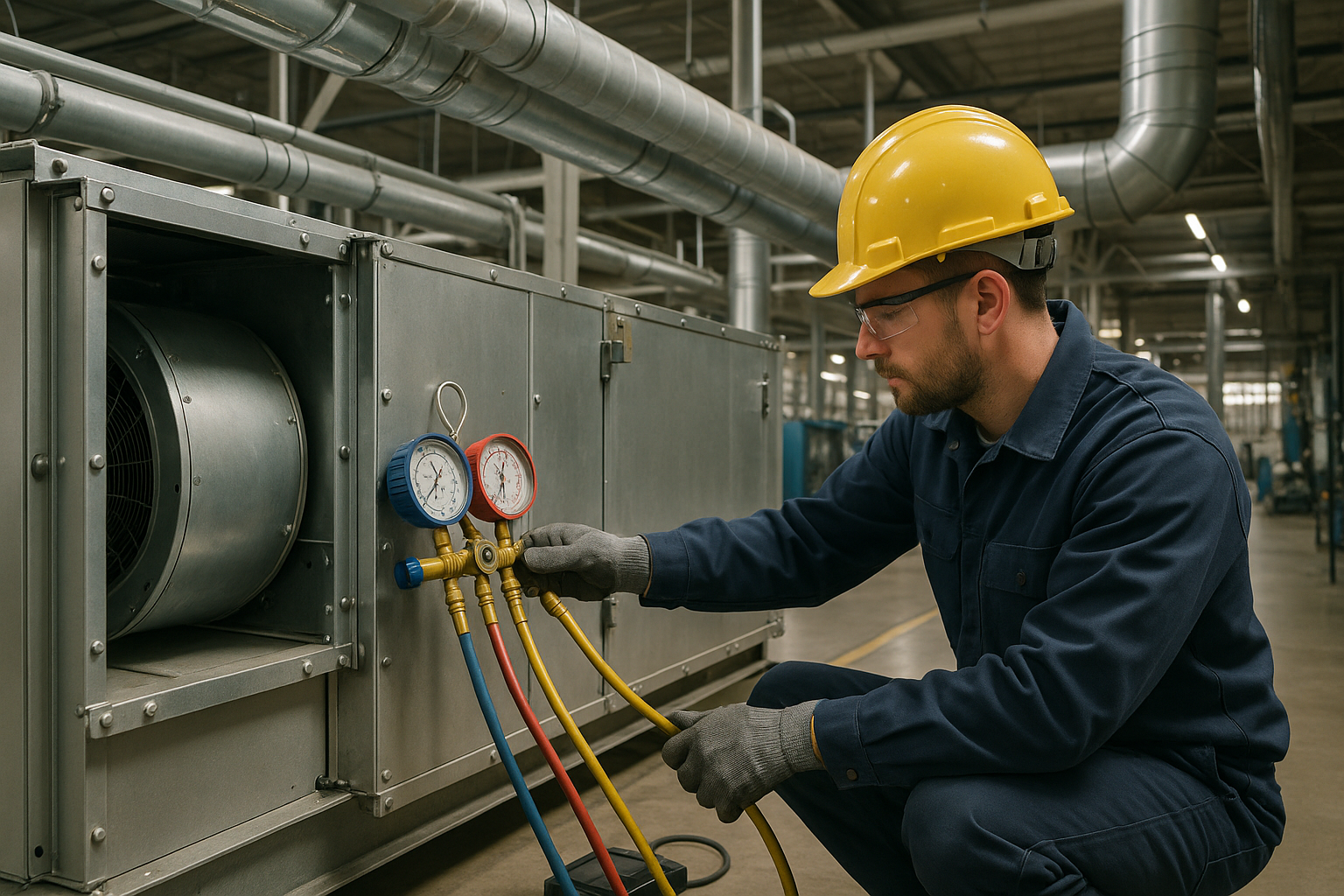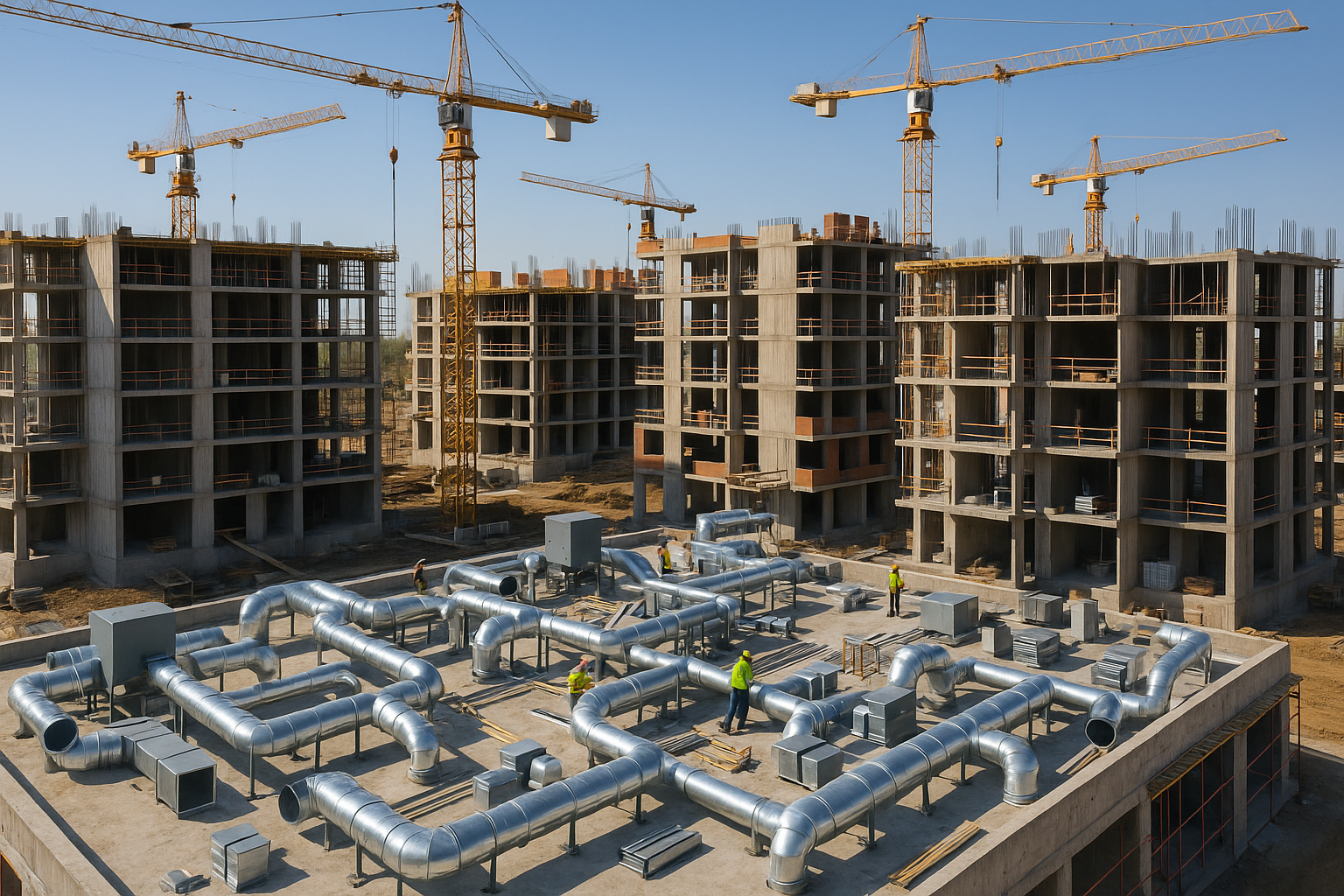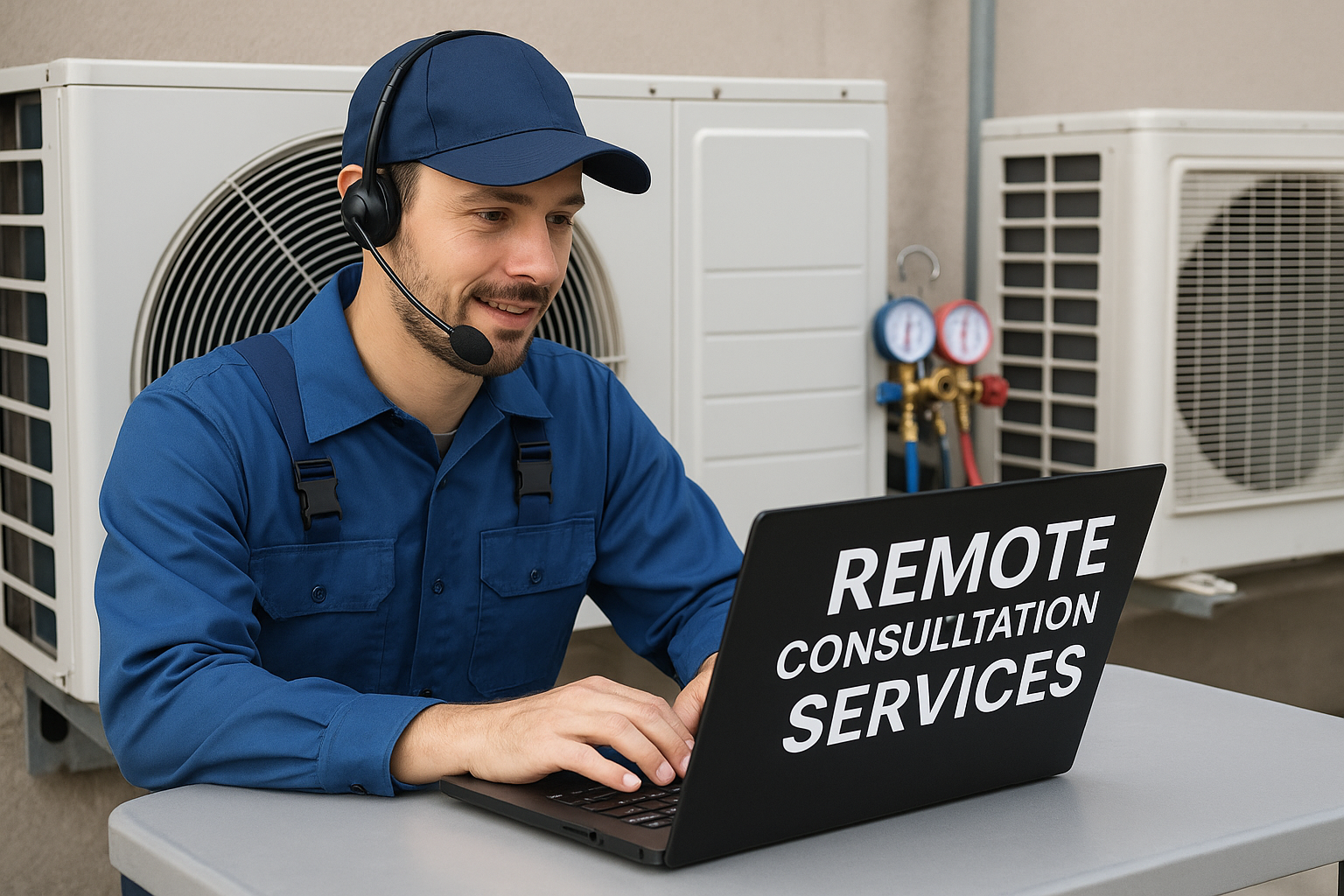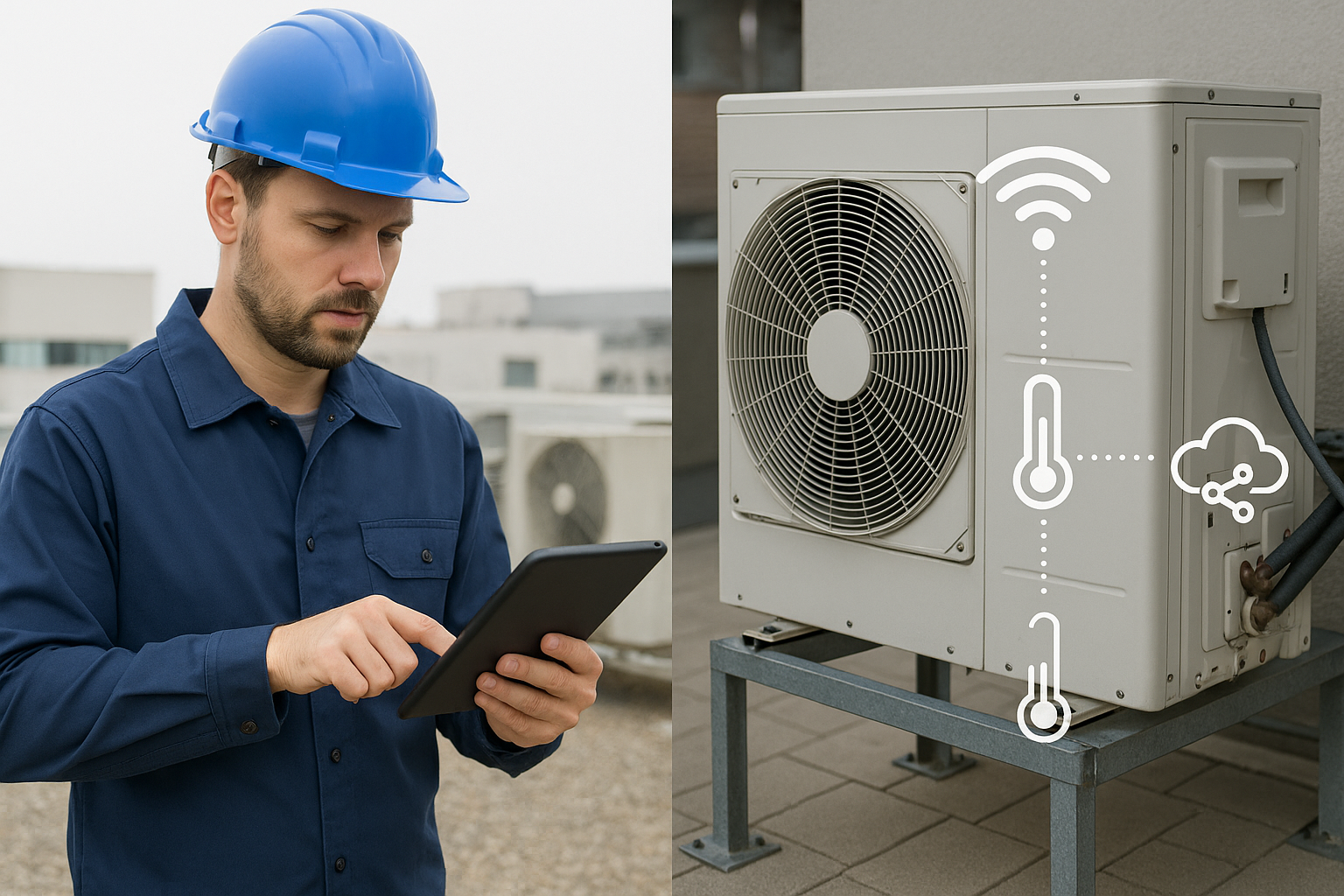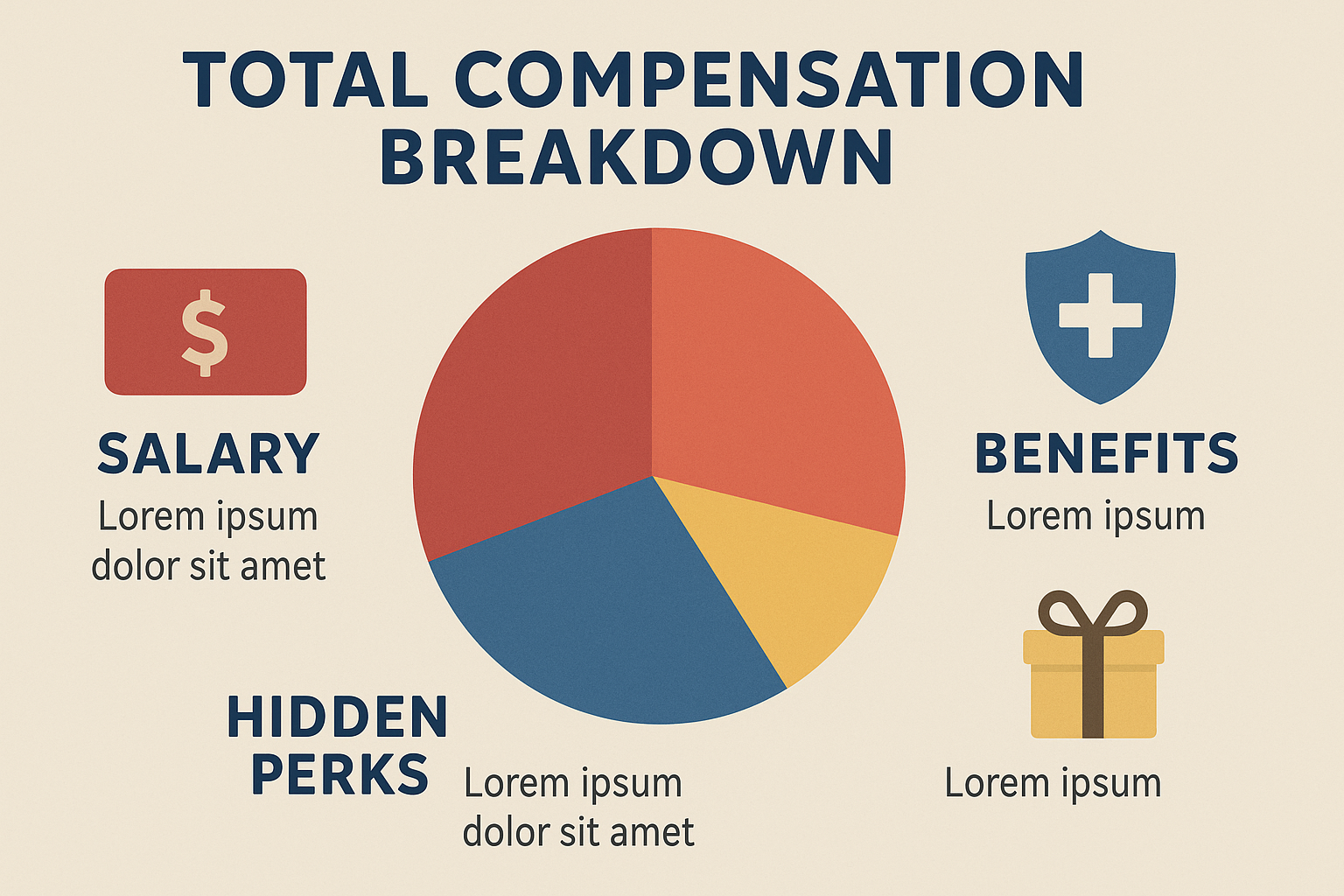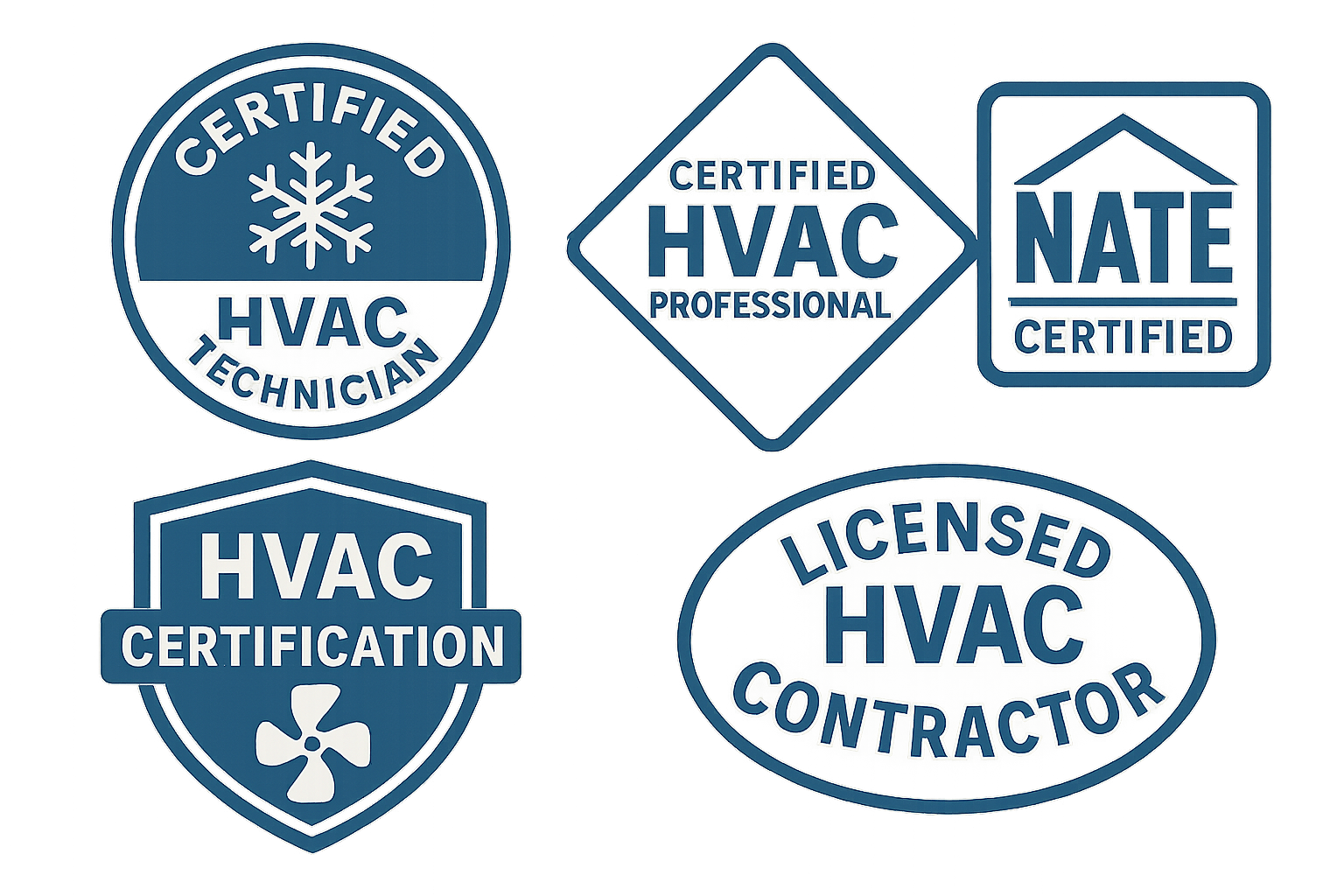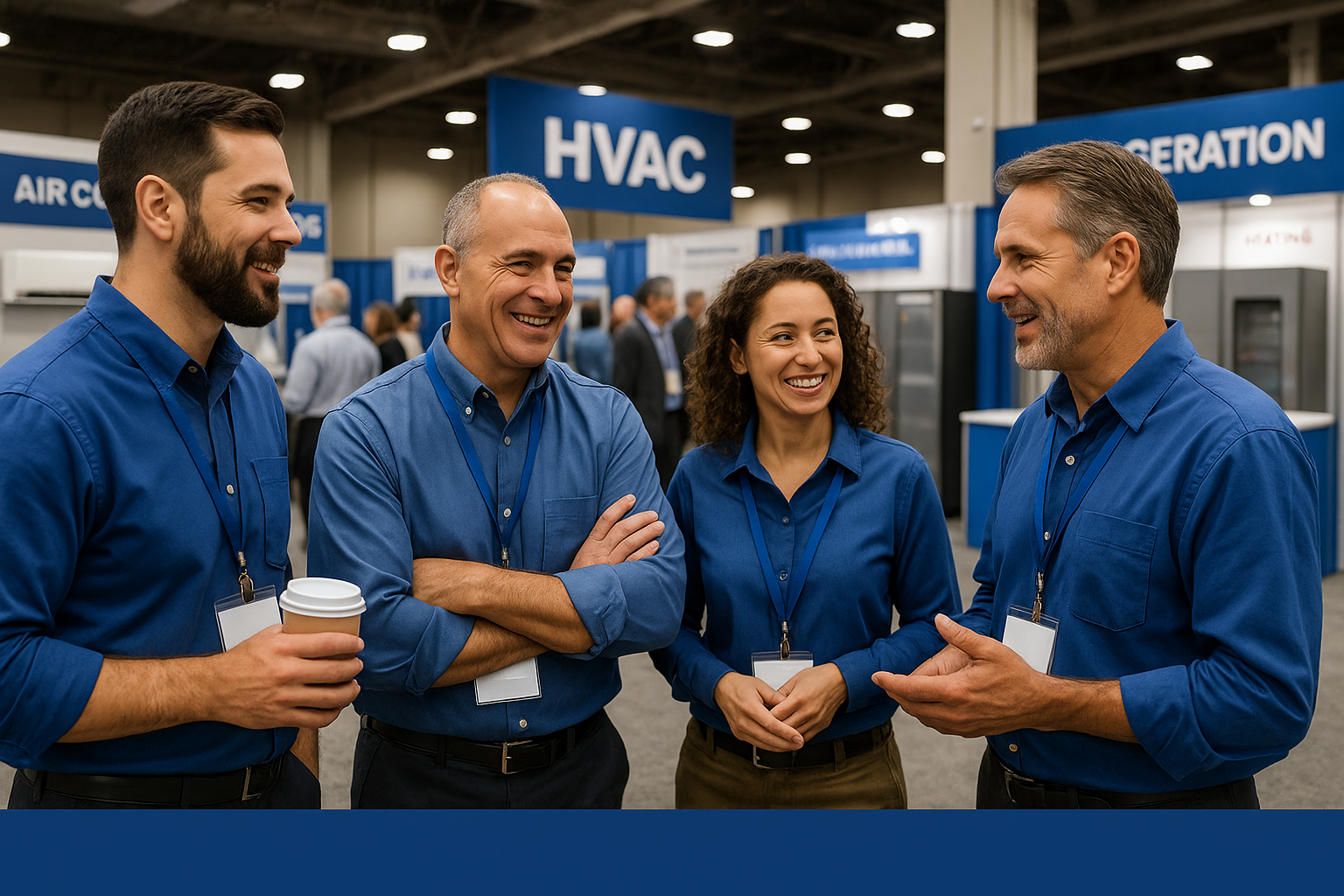The HVAC industry offers incredible earning potential that most technicians never fully realize. According to the Bureau of Labor Statistics, the median annual wage for heating, air conditioning, and refrigeration mechanics and installers was $59,810 in May 2024, but smart techs who understand market dynamics and strategic positioning can earn significantly more. This comprehensive guide reveals the salary secrets that can transform your HVAC career from a basic trade job into a lucrative profession.
Table of Contents
- Understanding Geographic Salary Goldmines
- Turning Your Skills Into Multiple Paychecks
- Mastering the Art of Getting Paid What You’re Worth
- Making Your Education Investment Actually Pay Off
- Final Thoughts
TL;DR
- Climate extremes and regional demand create salary opportunities most techs never explore – some locations pay 40-60% more for the same work
- Industrial and specialized systems can double or triple your earning potential compared to residential work
- Consultation work often pays 2-3x your regular hourly rate, and you can do it alongside your day job
- Performance metrics like customer satisfaction scores are your secret weapon in salary negotiations
- Cross-trade certifications (electrical, plumbing) significantly boost your market value
- Alternative compensation structures beyond hourly wages can dramatically increase total earnings
Understanding Geographic Salary Goldmines
Most HVAC techs stick to one area their whole career, missing out on massive salary differences based purely on location and climate. I’ve discovered that understanding market dynamics, seasonal patterns, and regional economic factors can literally double your income without changing your skill level. This isn’t about moving to expensive cities – it’s about strategic positioning where your HVAC skills are most valued and compensated.
The salary variations across states are dramatic. Entry-level HVAC technicians have the highest projected median pay in San Francisco ($64,200, $30.87 per hour) and New York City ($60,600, $29.13) according to ServiceTitan’s 2025 HVAC salary data. However, cost of living factors mean these high salaries don’t always translate to better purchasing power.
Following the Weather for Maximum Cash
Smart techs have figured out that extreme weather creates predictable salary spikes, and you can position yourself to capitalize on these patterns. Whether it’s brutal summers in Arizona or harsh winters in Minnesota, understanding climate-salary correlations helps you make strategic career moves that pay off big time.
I’ve watched HVAC technicians who understand seasonal demand patterns earn 30-40% more than their peers who stay put year-round. The secret is recognizing that your HVAC expertise becomes exponentially more valuable when systems are pushed to their limits.
Chasing Seasonal Demand Across State Lines
Some techs have mastered the art of seasonal migration – working cooling season in hot climates, then moving to heating-focused regions for winter. This strategy requires planning and flexibility, but the income potential is substantial when you’re always working in peak-demand seasons.
Jake, a 12-year HVAC veteran, spends April through September in Phoenix working for a commercial cooling company at $45/hour, then relocates to Minneapolis for October through March doing emergency heating repairs at $50/hour plus overtime. This seasonal strategy nets him over $95,000 annually while maintaining consistent peak-season demand.
The key to making seasonal migration work is building relationships with contractors in multiple regions. HVAC companies in extreme climate zones know they need extra hands during peak seasons, and they’re willing to pay premium rates for experienced technicians who can hit the ground running.
Cashing In When Weather Gets Extreme
Emergency weather events create premium pay opportunities that most techs don’t know how to quantify or negotiate. Understanding how to calculate and demand appropriate compensation during heat waves, cold snaps, and natural disasters can add thousands to your annual income.
When temperatures hit record highs or lows, HVAC systems fail at unprecedented rates. Property managers and homeowners become desperate for immediate service, creating a seller’s market for skilled technicians. I’ve seen HVAC technicians earn more in one extreme weather week than they typically make in a month.
Emergency Weather Premium Pay Checklist:
- ☐ Negotiate 1.5x-2x regular hourly rate for extreme weather calls
- ☐ Establish minimum 4-hour billing for emergency calls
- ☐ Secure hazard pay for dangerous conditions (ice, extreme heat)
- ☐ Document all emergency work for tax deductions
- ☐ Maintain emergency equipment and transportation
- ☐ Build relationships with multiple contractors for overflow work
Industrial Work: Where the Real Money Lives
The salary gap between residential, commercial, and industrial HVAC work is shocking – yet most techs never explore industrial opportunities. I’ve found that industrial positions often pay 50-100% more than residential work, with better benefits and more stable employment.
Industrial facilities require HVAC systems that operate under completely different parameters than residential units. The complexity, scale, and critical nature of these systems justify significantly higher compensation for hvacr technicians who can handle the work.
The demand for specialized industrial HVAC skills continues to grow as facilities become more technologically advanced. According to “HVACR Salary Survey: Learning Leads to a Larger Paycheck” from Contracting Business, technicians with commercial refrigeration certificates earn a median salary of $69,000 annually, representing a 25% increase over the industry median.
Specialized Systems That Command Premium Rates
Working with clean rooms, data centers, pharmaceutical facilities, and other specialized industrial systems puts you in an elite earning category. These environments require specific knowledge and certifications, but the pay premium makes the investment worthwhile.
Data centers alone represent a goldmine for HVAC technicians willing to learn specialized cooling systems. These facilities cannot tolerate temperature fluctuations, making skilled technicians incredibly valuable. The same applies to pharmaceutical clean rooms, where precise environmental control is literally a matter of life and death.
| Industry Specialization | Average Hourly Rate | Required Certifications | Typical Experience |
|---|---|---|---|
| Data Centers | $35-50/hr | EPA 608, NATE, CompTIA | 3-5 years |
| Pharmaceutical Clean Rooms | $40-55/hr | EPA 608, USP 797, ISO 14644 | 5+ years |
| Food Processing | $32-45/hr | EPA 608, HACCP, FDA regulations | 3+ years |
| Hospital Systems | $38-52/hr | EPA 608, Joint Commission standards | 4+ years |
| Manufacturing Plants | $30-42/hr | EPA 608, OSHA 30, industry-specific | 2+ years |
Certifications That Actually Multiply Your Paycheck
Certain certifications for regulated industries create automatic salary multipliers. Understanding which credentials have real market value versus which are just paper helps you invest your time and money wisely.
The pharmaceutical industry, for example, requires HVAC technicians who understand USP 797 standards for sterile compounding facilities. This single certification can add $10-15 per hour to your base rate because so few technicians possess it.
Union vs Non-Union: The Numbers Don’t Lie
The compensation difference between unionized industrial positions and non-union work is often dramatic. Understanding these wage gaps helps you make informed decisions about where to focus your career development efforts.
Union HVAC technicians in industrial settings typically earn 20-30% more than their non-union counterparts, plus significantly better benefits packages. The trade-off is often less flexibility in work assignments and stricter adherence to protocols.
Timing Economic Cycles for Career Wins
Construction booms and economic cycles create temporary but lucrative salary opportunities for techs who know how to spot and capitalize on them. Understanding these patterns helps you time job changes and career moves for maximum financial impact.
The HVAC industry is expected to add 40,100 jobs by 2033, with employment projected to grow 9 percent from 2023 to 2033, much faster than the average for all occupations according to the Bureau of Labor Statistics.
Riding Construction Boom Waves
Regional construction booms create sudden spikes in HVAC demand and corresponding salary increases. Learning to identify these opportunities early and position yourself accordingly can result in significant short-term income boosts.
Major infrastructure projects, new commercial developments, and residential construction surges all create temporary but substantial increases in HVAC technician demand. The key is monitoring construction permits and economic development announcements in your region.
Staying Employed When Others Get Laid Off
Certain market segments maintain or even increase compensation during economic downturns. Positioning yourself in recession-proof areas of the industry ensures steady income when others are struggling to find work.
Healthcare facilities, data centers, and food processing plants continue operating regardless of economic conditions. HVAC technicians who specialize in these sectors often see increased demand during recessions as facilities defer major equipment replacements in favor of maintenance and repair work.
Turning Your Skills Into Multiple Paychecks
Most techs think their only option is trading hours for dollars at one job, but your HVAC expertise can generate income from multiple sources simultaneously. I’ve learned that diversifying revenue streams increases total income and provides financial security and career flexibility.
The beauty of HVAC knowledge is its versatility. Your understanding of mechanical systems, electrical components, and building operations creates opportunities far beyond traditional service calls. Smart hvacr technicians leverage this expertise across multiple income streams, often doubling or tripling their earning potential.
Consulting: Your Expertise is Worth More Than You Think
Experienced techs can leverage their knowledge for consulting work that often pays 2-3 times their regular hourly rate. The key is understanding how to package and market your expertise to clients who value specialized knowledge over basic service calls.
Property managers, building owners, and even other HVAC companies need expert advice on system design, efficiency improvements, and troubleshooting complex problems. Your years of hands-on experience solving real-world HVAC challenges has tremendous value in the consulting market.
Expert Witness Work: Getting Paid to Share What You Know
Legal cases involving HVAC system failures or installation disputes need expert witnesses, and this work pays extremely well. Most techs don’t know this opportunity exists, but it can provide substantial supplemental income for those with solid experience and communication skills.
Maria, a 15-year HVAC veteran, earns $150/hour as an expert witness in legal cases involving faulty installations. She typically works 2-3 cases per year, adding $15,000-25,000 to her annual income while building her reputation as a technical authority.
The legal system needs HVAC technicians who can explain complex technical issues in understandable terms. Your ability to identify installation errors, system deficiencies, and code violations becomes incredibly valuable in litigation contexts.
Energy Auditing: Turning Efficiency Knowledge Into Cash
Commercial properties need energy efficiency audits, and HVAC techs with the right knowledge can provide these services independently. This work typically pays well and positions you as a consultant rather than just a service provider.
Building owners are increasingly focused on energy costs and environmental compliance. Your understanding of HVAC system efficiency, building envelope interactions, and energy consumption patterns makes you perfectly positioned to offer energy auditing services.
Smart Home Integration: The Future is Now (and It Pays)
The growing smart home market creates premium opportunities for techs who can integrate traditional HVAC systems with modern technology. This specialized skill commands higher rates and appeals to affluent homeowners willing to pay for expertise.
Smart thermostats, zoned systems, and integrated home automation require HVAC technicians who understand both mechanical systems and digital technology. This intersection of old and new creates a premium service category with corresponding premium pricing.
Digital Revenue: Making Money While You Sleep
Technology creates opportunities to monetize your HVAC knowledge through digital platforms and remote services. These income streams can generate money even when you’re not physically working, creating true passive income potential.
Your years of troubleshooting HVAC problems have given you knowledge that other technicians and property owners desperately need. Digital platforms allow you to package and sell this expertise without the time constraints of physical service calls.
Creating Online Training Content
Your years of experience solving HVAC problems have value to other techs and property owners. Creating educational content, courses, and digital products can generate ongoing income from knowledge you’ve already acquired.
Online learning platforms, YouTube channels, and specialized training websites provide multiple avenues for monetizing your expertise. The key is identifying the specific problems you solve repeatedly and creating content that helps others handle these situations.
Remote Diagnostic Services
Modern IoT and monitoring technologies allow experienced techs to offer remote troubleshooting services. This work pays well because you’re solving problems without the time and expense of physical service calls.
Building automation systems and smart HVAC equipment generate data that experienced technicians can interpret remotely. Property managers increasingly value remote diagnostic services that can prevent emergency calls and optimize system performance.
From Employee to Business Owner: Making the Jump
Transitioning from employee to business owner requires strategy to minimize risk while maximizing income potential. Understanding different business models and launch strategies helps you make this transition successfully without losing financial stability.
The path from HVAC technician to business owner isn’t just about technical skills – it requires understanding customer acquisition, pricing strategies, and business operations. However, the financial rewards can be substantial for those who make the transition successfully.
Starting Your Service Business Smart
Launching an HVAC service business while maintaining steady income requires careful planning and execution. The right approach allows you to build a customer base and revenue stream before making the full transition to business ownership.
Many successful HVAC business owners started by taking on weekend and evening service calls while maintaining their day jobs. This approach provides income stability while building the customer relationships and business systems necessary for full-time entrepreneurship.
Business Launch Transition Checklist:
- ☐ Build 6-month emergency fund before leaving employment
- ☐ Secure business license and insurance
- ☐ Establish relationships with suppliers for equipment pricing
- ☐ Create basic marketing materials and online presence
- ☐ Line up initial customers through networking
- ☐ Set up business banking and accounting systems
- ☐ Plan transition timeline with current employer
- ☐ Secure financing or equipment leasing if needed
Franchise vs Going Independent: What Really Matters
The financial implications of franchise ownership versus independent business development are significant and often misunderstood. Understanding these differences helps you choose the path that aligns with your financial goals and risk tolerance.
Franchise operations provide established systems and brand recognition but typically require significant upfront investment and ongoing royalty payments. Independent businesses offer more flexibility and profit potential but require you to develop all systems and marketing from scratch.
Mastering the Art of Getting Paid What You’re Worth
Most HVAC techs accept whatever salary they’re offered without understanding how compensation decisions are actually made. Learning advanced negotiation strategies and understanding what employers really value can dramatically increase your earning potential at any experience level.
Salary negotiations in the HVAC industry often fail because technicians focus on their needs rather than demonstrating their value to employers. The most successful hvac technicians understand that compensation discussions are business transactions based on measurable contributions to company success.
Performance Metrics That Actually Matter to Your Paycheck
Employers make salary decisions based on specific performance indicators, but most techs don’t know which metrics actually influence compensation. Understanding and optimizing these key performance areas gives you concrete leverage in salary negotiations.
According to Jobber’s comprehensive salary survey, HVAC technician salaries vary significantly by experience level – technicians with over 17 years of experience average $61,101 annually, while those with under 3 years earn $36,614, as reported by ACHR News.
The gap between entry-level and experienced hvac technician compensation reflects the value that proven performance metrics bring to employers. Smart technicians track and present these metrics strategically during performance reviews and salary negotiations.
Customer Satisfaction: Your Secret Negotiation Weapon
Customer satisfaction scores directly impact business success, making them powerful tools for salary negotiations. Learning to track, improve, and present these metrics effectively can justify significant pay increases.
HVAC companies live and die by customer reviews and repeat business. Technicians who consistently generate positive customer feedback become incredibly valuable assets, especially in competitive markets where reputation drives business growth.
Efficiency Ratios: Proving Your Value with Numbers
Job completion efficiency metrics demonstrate your value to employers in concrete terms. Calculating and presenting these ratios during performance reviews provides objective justification for higher compensation.
Employers care about billable hours, job completion rates, and revenue per technician because these metrics directly impact profitability. HVAC technicians who can demonstrate superior efficiency in these areas have strong leverage in compensation discussions.
| Performance Metric | Industry Average | Top Performer | Salary Impact |
|---|---|---|---|
| Customer Satisfaction Score | 4.2/5.0 | 4.8/5.0 | 8-12% increase |
| Jobs Completed Per Day | 3.5 | 5.2 | 15-20% increase |
| First-Call Resolution Rate | 75% | 90% | 10-15% increase |
| Upsell/Cross-sell Revenue | $2,500/month | $4,500/month | 12-18% increase |
| Safety Incident Rate | 2.1/year | 0.2/year | 5-8% increase |
Building Relationships That Boost Your Career
Mentorship and sponsorship relationships with industry leaders can accelerate career advancement and salary growth faster than any other single factor. Understanding how to develop these relationships strategically pays long-term dividends.
The HVAC industry remains relationship-driven despite technological advances. Experienced professionals who take interest in your career development can provide opportunities, recommendations, and insights that dramatically accelerate your earning potential.
Beyond Hourly Wages: Alternative Pay Structures
Traditional hourly wages aren’t the only way to get paid, and alternative compensation structures can significantly increase total earnings. Understanding these options and knowing how to negotiate them opens up new possibilities for financial growth.
Many hvac technicians limit their earning potential by focusing exclusively on hourly rates. Smart professionals explore commission structures, profit-sharing arrangements, and performance bonuses that can substantially increase total compensation.
Getting a Piece of the Pie: Profit-Sharing and Equity
Negotiating for ownership stakes or profit-sharing arrangements in HVAC businesses can provide substantial long-term financial benefits. Understanding how these structures work helps you evaluate and negotiate these opportunities effectively.
Tom negotiated a 2% profit-sharing arrangement with his employer after demonstrating consistent performance improvements. This added $8,400 to his annual compensation when the company had a strong year, on top of his base salary of $55,000.
Profit-sharing aligns your interests with company success, creating incentives for exceptional performance while providing upside potential beyond traditional wages. The key is demonstrating your contribution to company profitability before proposing these arrangements.
Performance Bonuses That Actually Pay
Well-designed bonus structures tied to specific performance metrics can add thousands to annual income. Learning to propose and negotiate these arrangements ensures your extra effort translates to extra pay.
Effective bonus structures should be based on measurable outcomes that you can directly influence. Customer satisfaction scores, efficiency metrics, and safety records all provide objective foundations for performance-based compensation increases.
Benefits Packages: The Hidden Money in Your Compensation
Total compensation includes much more than base salary, and strategic benefits negotiation can add significant value to your package. Understanding how to maximize health insurance, retirement contributions, and professional development funding increases your real income.
Many HVAC technicians focus exclusively on hourly wages while ignoring benefits that can add thousands of dollars in annual value. Health insurance, retirement matching, and professional development funding often represent 20-30% of total compensation value.
Making Your Education Investment Actually Pay Off
Not all certifications and training programs provide equal return on investment, and many techs waste money on credentials that don’t actually increase earning potential. Understanding which educational paths provide real financial returns helps you invest your time and money wisely.
The importance of continuing education in HVAC cannot be overstated. According to a recent survey by Connecteam, “61% of HVACR professionals have completed some kind of professional education”, and those with undergraduate degrees in HVAC earn 32% higher median salaries than those with only EPA Section 608 certification.
This salary premium for education reflects the increasing complexity of modern HVAC systems and the value that employers place on comprehensive technical knowledge. However, not all educational investments provide equal returns, making strategic planning essential.
Alternative Ways to Prove Your Worth
Traditional degree programs aren’t the only way to demonstrate expertise and qualifications that employers value. Understanding alternative credentialing pathways can provide faster, more cost-effective routes to higher compensation.
The HVAC industry increasingly recognizes competency-based credentials and specialized certifications that demonstrate practical skills. These alternative pathways often provide better return on investment than traditional degree programs for working technicians.
Micro-Credentials That Pack a Punch
Specialized certifications in specific HVAC niches often command premium salaries despite requiring less time and money than broad certifications. Identifying these high-value micro-credentials helps you target your professional development efforts effectively.
Manufacturer-specific certifications for major equipment brands can provide immediate salary increases because they demonstrate expertise with systems that companies service regularly. These credentials often require just days or weeks to obtain but can add thousands to annual earnings.
Cross-Training for Higher Pay
Obtaining certifications in related trades significantly increases earning potential by making you more versatile and valuable to employers. This cross-training investment often pays for itself quickly through higher wages.
HVAC technicians with electrical or plumbing certifications become incredibly valuable to employers because they can handle multiple aspects of building systems. This versatility reduces labor costs for employers while increasing earning potential for technicians.
High-ROI Cross-Training Opportunities:
- ☐ Electrical licensing (adds $5-8/hour premium)
- ☐ Plumbing certification (increases versatility)
- ☐ Building automation systems (commercial focus)
- ☐ Refrigeration specialization (industrial applications)
- ☐ Energy efficiency auditing (consulting opportunities)
- ☐ Smart home technology integration
- ☐ Welding certification (equipment fabrication)
Strategic Professional Development
Investing in education and training requires strategy to maximize salary impact and return on investment. Understanding how to calculate potential returns and leverage employer training budgets helps you advance your career cost-effectively.
Professional development in the HVAC industry should be viewed as business investment rather than educational expense. The most successful hvac technicians approach training strategically, focusing on credentials and skills that provide measurable financial returns.
Calculating Training ROI Like a Pro
Methods for calculating the financial return on various training and certification investments help you prioritize professional development spending. This analytical approach ensures your education investments actually translate to higher earnings.
Before investing in any certification or training program, calculate the potential salary increase against the cost and time investment. A $2,000 certification that increases your hourly rate by $3 pays for itself in less than 700 hours of work.
Maximizing Employer Training Budgets
Most employers have training budgets that go unused, representing free opportunities to obtain valuable certifications and skills. Learning to leverage these resources effectively can advance your career without personal financial investment.
Many HVAC companies allocate training budgets annually but struggle to find employees who actively pursue professional development. Proactive technicians who present training plans and demonstrate commitment to skill development often receive full funding for valuable certifications.
Networking Investments That Actually Pay Back
Industry conference attendance and networking investments can translate to salary increases and career opportunities, but only when approached strategically. Understanding how to maximize these investments ensures they provide real financial returns.
HVAC industry conferences and trade shows provide opportunities to learn about new technologies, meet potential employers, and build relationships with industry leaders. However, these investments only pay off when approached with specific goals and follow-up strategies.
Final Thoughts
The HVAC industry offers far more earning potential than most technicians realize, but capturing these opportunities requires strategic thinking and proactive career management. Success isn’t about technical skills alone – it’s about understanding market dynamics, positioning yourself strategically, and negotiating effectively.
Whether you’re just starting out or have decades of experience, implementing these strategies can significantly increase your earning potential and career satisfaction. Geographic arbitrage isn’t just for tech workers – HVAC techs can leverage climate patterns and regional demand for substantial salary increases. Industrial and specialized systems work often pays double or triple residential rates, yet most hvac technicians never explore these opportunities.
Your existing expertise has consulting value that can generate 2-3x your hourly rate through side work. Performance metrics provide concrete leverage in salary negotiations, while alternative compensation structures beyond hourly wages can dramatically increase total earnings. Cross-trade certifications provide immediate market value and salary premiums that justify the investment.
The key is taking action on the opportunities that align with your goals and circumstances, rather than accepting whatever hvacr technicians salary comes your way. Strategic timing of career moves around economic cycles and construction booms maximizes earning potential, while professional development investments should be calculated for ROI – not all certifications provide equal financial returns.
Your HVAC technician salary doesn’t have to be limited by traditional thinking. The salary for hvac technicians varies dramatically based on strategic positioning, specialized skills, and market understanding. Even your ac tech salary can be optimized through the strategies outlined in this guide. The opportunities exist – the question is whether you’ll take advantage of them.

